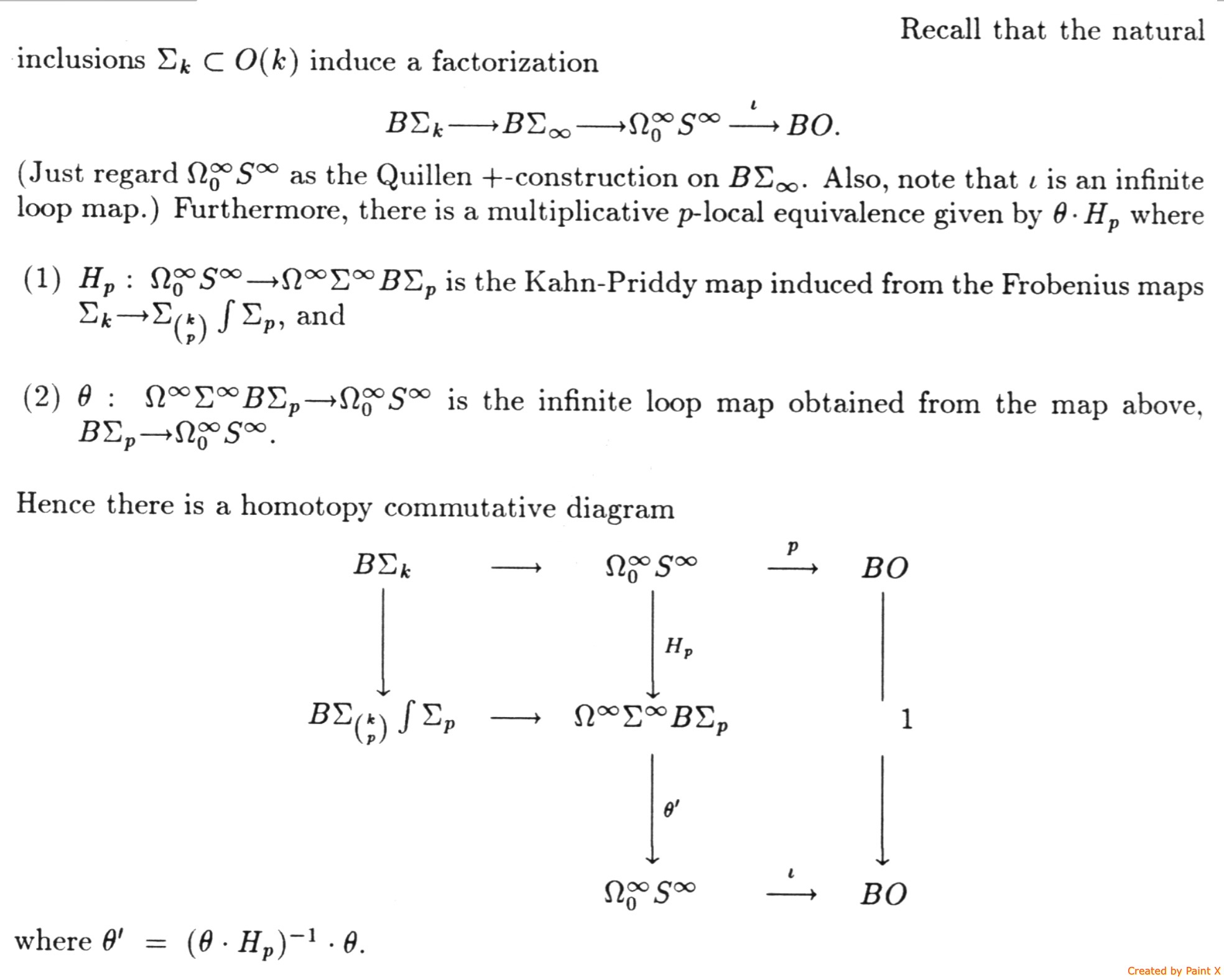The following is a part of a paper that I need to understand
I totally do not know the argument. Could you explain? Thanks.
Let $\Sigma_n$ be the $n$-th symmetric group and $\Sigma_\infty$ be the direct limit. Let $\Omega^nS^n$ be the $n$-iterated loop space on the $n$-sphere and $\Omega_k^nS^n$ be the subset of $\Omega^nS^n$ consisting of maps $S^n\to S^n$ of degree $k$. Let $\Omega^\infty_kS^\infty$ be the direct limit of $\Omega^n_kS^n$ with respect to $n$. I want to find references or explanations of the following items:
(1). $\Omega^\infty_0S^\infty$ is the Quillen plus construction on $B\Sigma_\infty$.
For any prime $p$,
(2). there is a "Frobenius map": $\Sigma_k\to \Sigma_{{k}\choose{p}}\int \Sigma_p$ (What does the integral mean?) which induces a "Kahn-Priddy map" $H_p:\Omega^\infty_0S^\infty\to \Omega^\infty \Sigma^\infty B\Sigma_p$.
(3). the Quillen plus construction gives a map $i: B\Sigma_p\to \Omega^\infty_0S^\infty$. This map induces a map $\theta_p: \Omega^\infty\Sigma^\infty B\Sigma_p\to \Omega_0^\infty S^\infty$.
(4). The composition $\theta_p H_p:\Omega_0^\infty S^\infty\to \Omega_0^\infty S^\infty$ is a "multiplicative $p$-local equivalence" (what means "multiplicative $p$-local equivalence"?).
Could you give a help for references or explanations? What do the above items mean?

